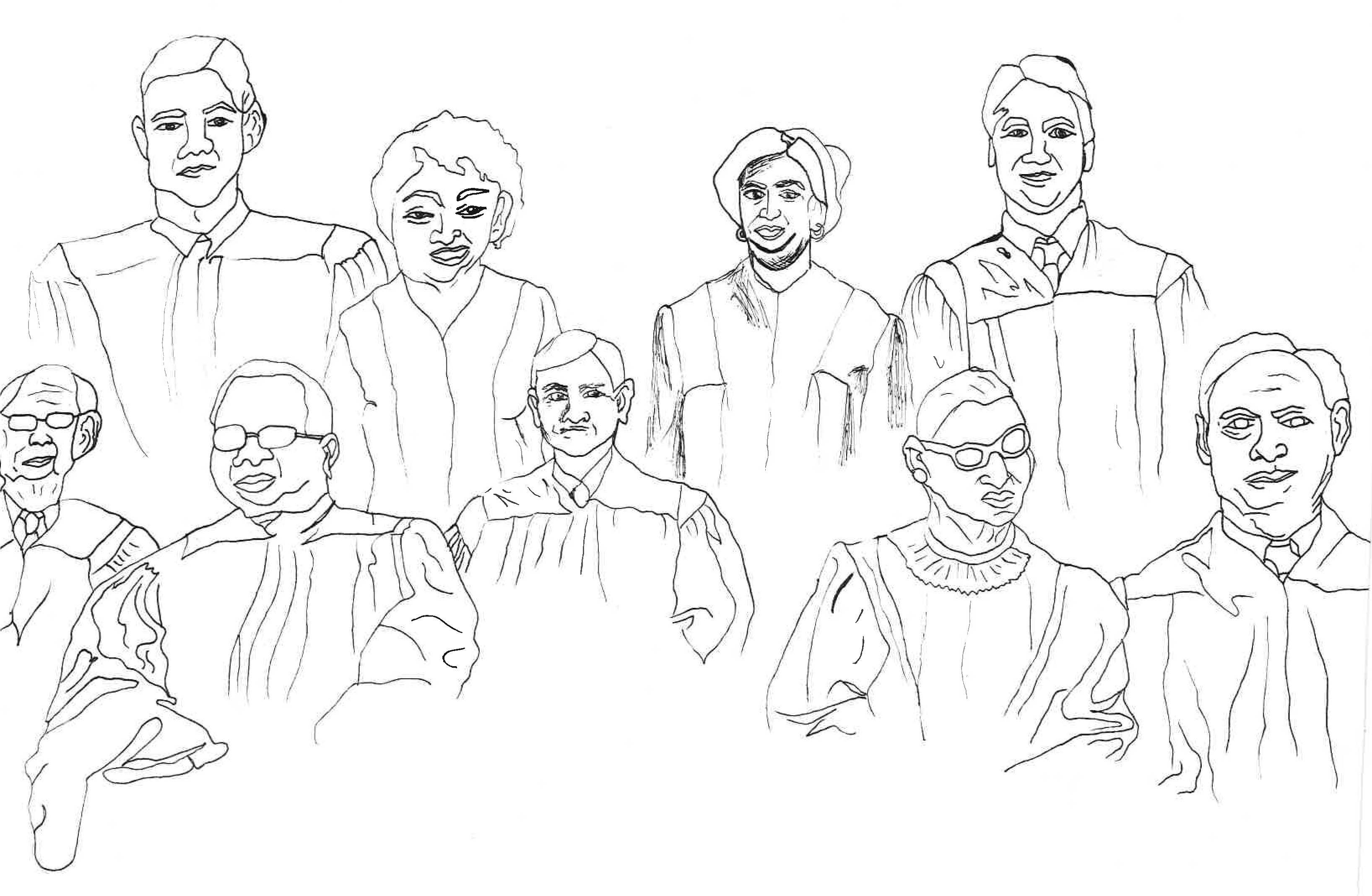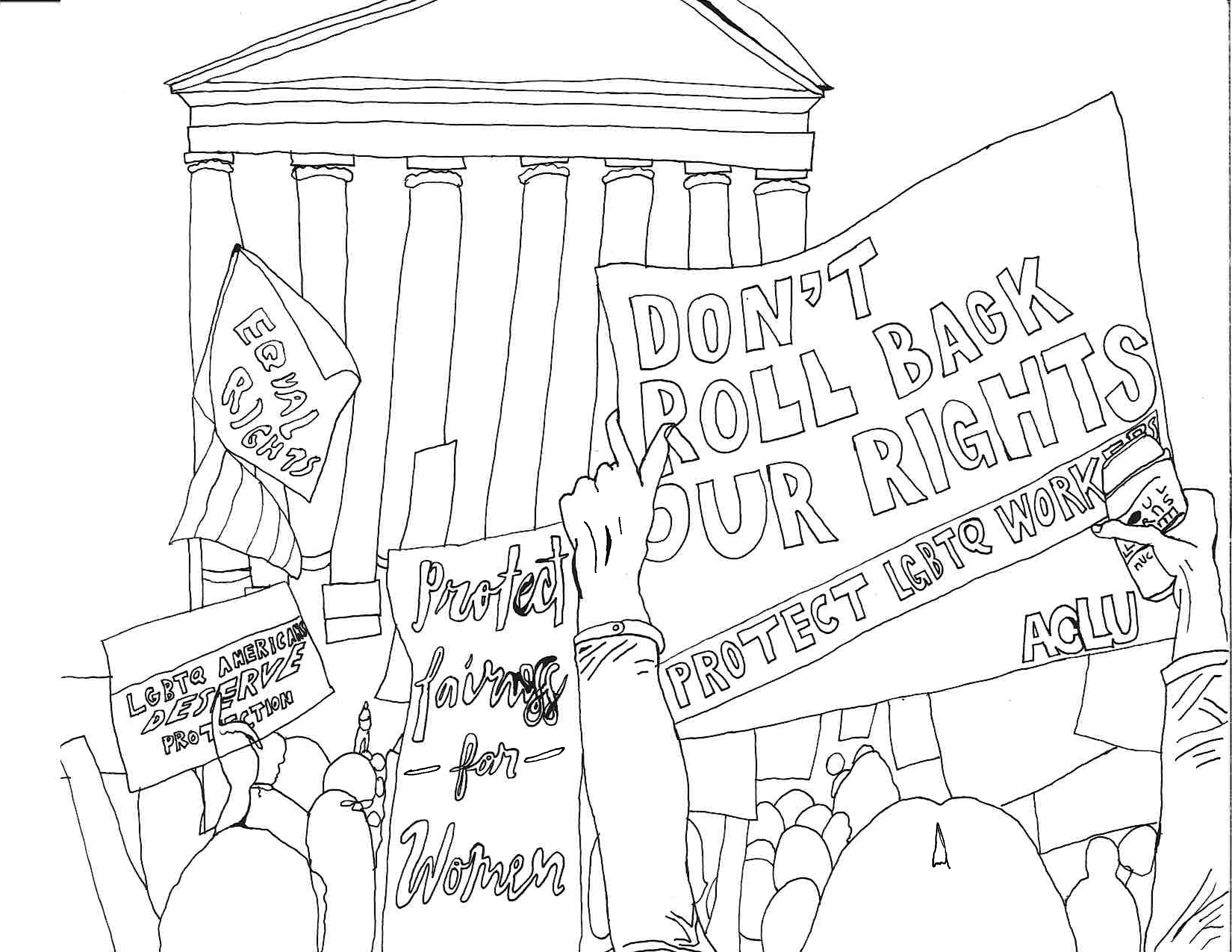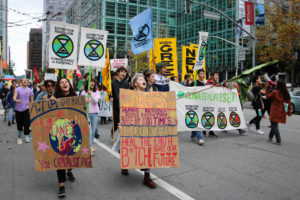On October 8 and 9, the Supreme Court of the United States heard three cases that will decide whether the 1964 Civil Rights Act protects LGBTQ+ people and, more specifically, the trans community.

drawing by Roma Edwards
Oral arguments were heard for R.G. & G.R. Harris Funeral Home v. EEOC & Aimee Stephens and for Altitude Express v. Zarda (the third case, Bostock v. Clayton County, Georgia, had been consolidated into Zarda). Stephens is specifically relevant to the trans community and Zarda and Bostock to the gay community.
Lawyers, including attorneys from the American Civil Liberties Union (ACLU) among the many others, argued that each of the three plaintiffs — Stephens, Zarda and Bostock — had suffered sex discrimination under Title VII of the Civil Rights Act.
Lawyers arguing against the plaintiffs’ rights in the workplace cited Title X of the Civil Rights Act: “[There are] certain instances where religion, sex, or national origin is a bona fide occupational qualification reasonably necessary to the normal operation of … [a] business.”
Michigan resident Aimee Stephens, the plaintiff (the respondent in the Supreme Court) who brought the case R.G. & G.R. Harris Funeral Homes Inc. v. Equal Employment Opportunity Commission (EEOC) & Aimee Stephens before the courts, was fired from her job at a funeral home when she revealed to her boss that she would be transitioning from male to female.
Donald Zarda, who brought Altitude Express inc. v. Zarda. was fired from his job when a client learned that he was gay. Bostock was also fired from his job because he was gay.
The Supreme Court’s decisions on all three cases are not likely to come out until October 2020 and will answer the questions: can jobs be terminated when an employee’s gender presentation differs from their biological sex or on the basis of sexual orientation?
In lower court proceedings, the plaintiffs had prevailed. In the Supreme Court, they are the responders to the petitioners’ request to have the Supreme Court reconsider the lower courts’ finding.
One of the factors involved in the outcome of these cases is that the two new justices appointed by President Donald Trump, Neil Gorsuch and Brett Kavanagh, are untested on questions regarding gender-identity or sexual orientation. The case will set a precedent for future LGBTQIA+ cases in the new conservative-leaning Supreme Court bench.
In an article on its website, the ACLU writes, “This is a key judicial test of the Department of Justice’s efforts to deny LGBTQ people protection from sex discrimination. Should the Supreme Court overturn the lower courts’ rulings, it would take away existing protections from lesbian, gay, bisexual, and transgender employees, saying that it is lawful under federal law to fire LGBTQ people for their gender identity or sexual orientation.”
David Cole, legal director of the ACLU, who argued on behalf of Aimee Stephens, noted, “The LGBTQ community has won hard-fought protections in courts before, and we are hoping the justices will not turn back the clock on equality and justice.”
Tony Asaro, a Lick-Wilmerding music teacher and faculty advisor of the school’s Gender Sexuality Awareness (GSA) club, said the ruling, in this case, feels more important than the right to marry. “This is our right to livelihood,” he said. “Can we assume that we are safe in our place of work? If this [gets overturned], it will force people back into the closet — which is terrible — and will create a culture of fear.”







